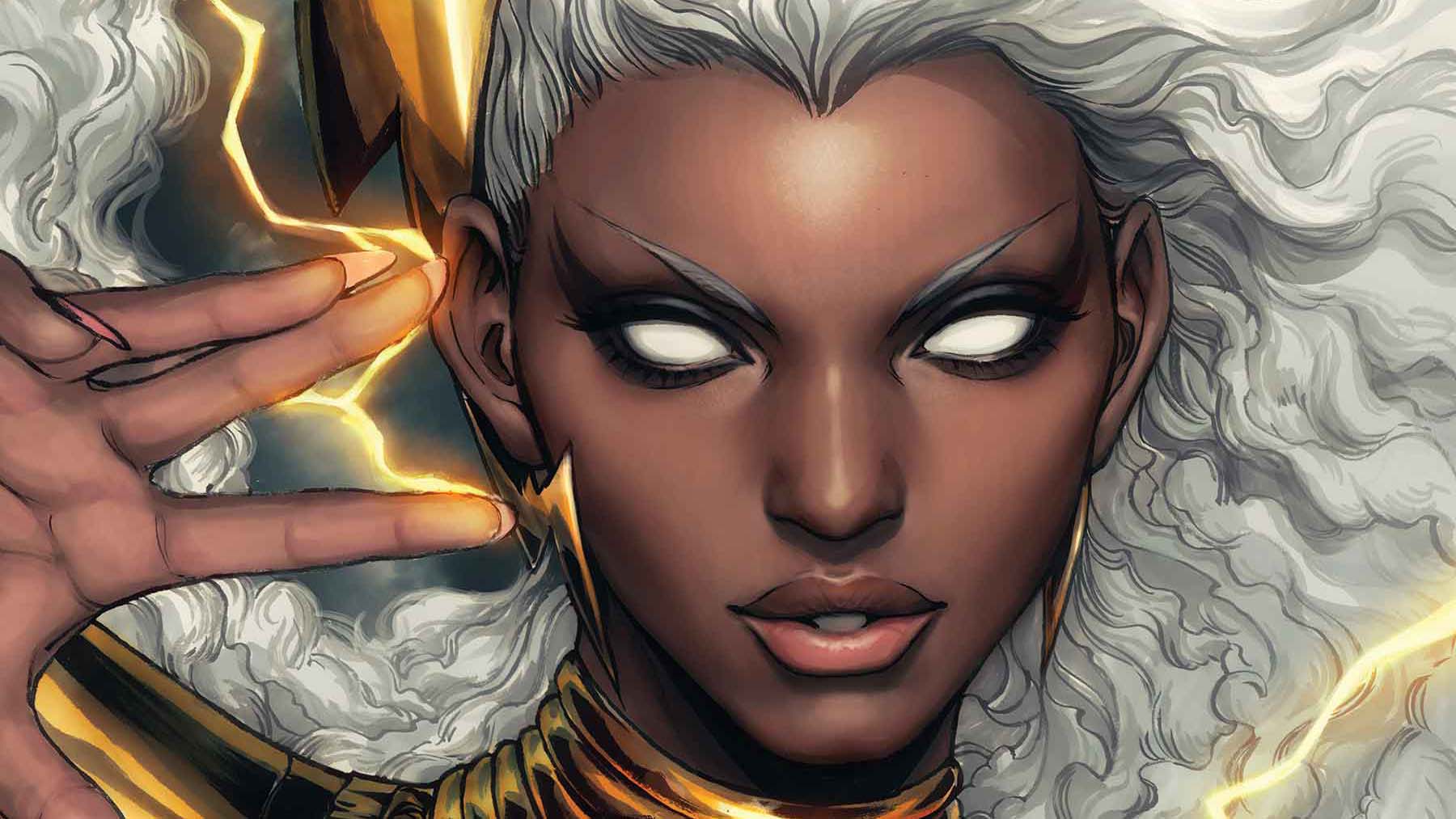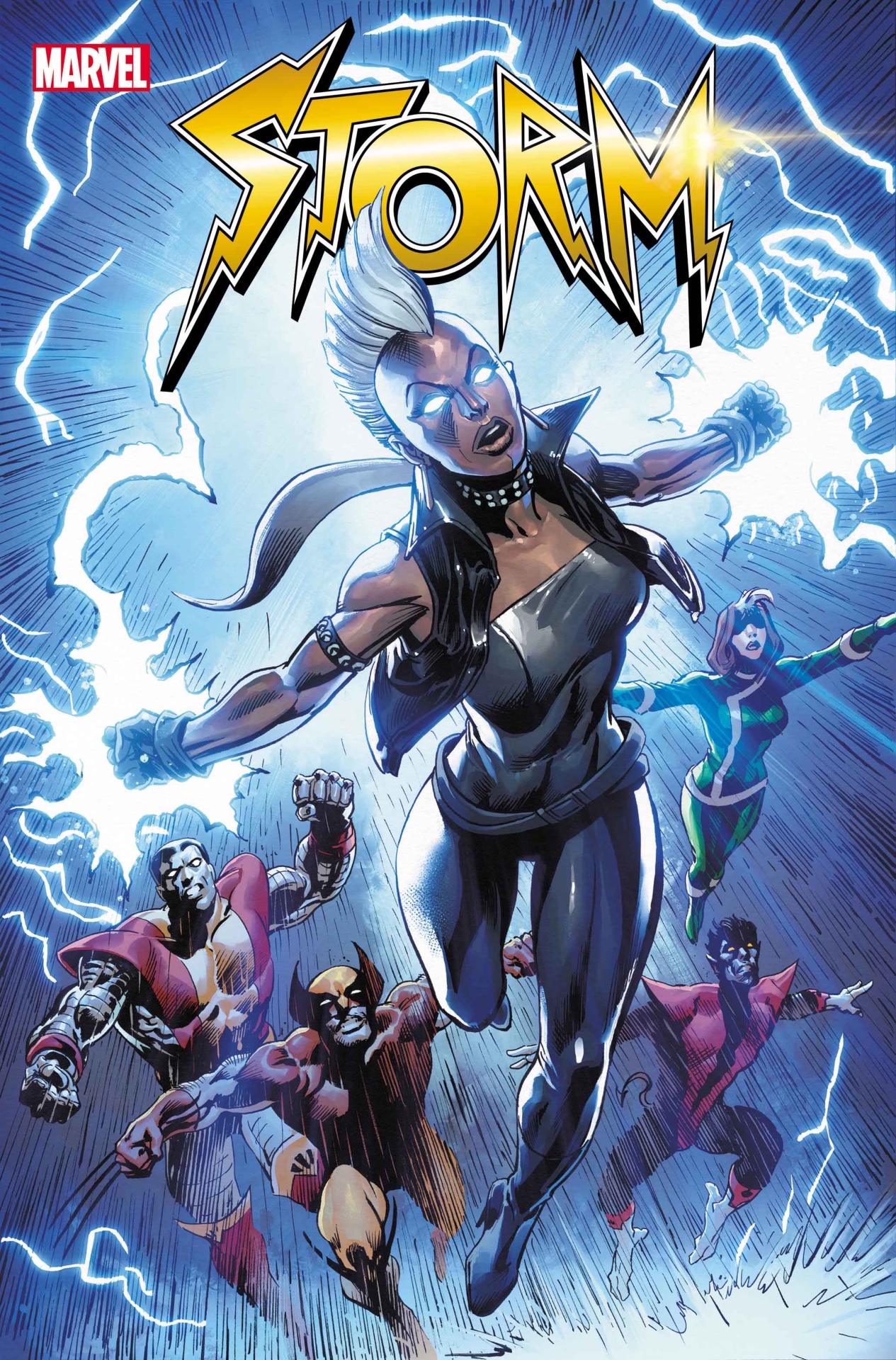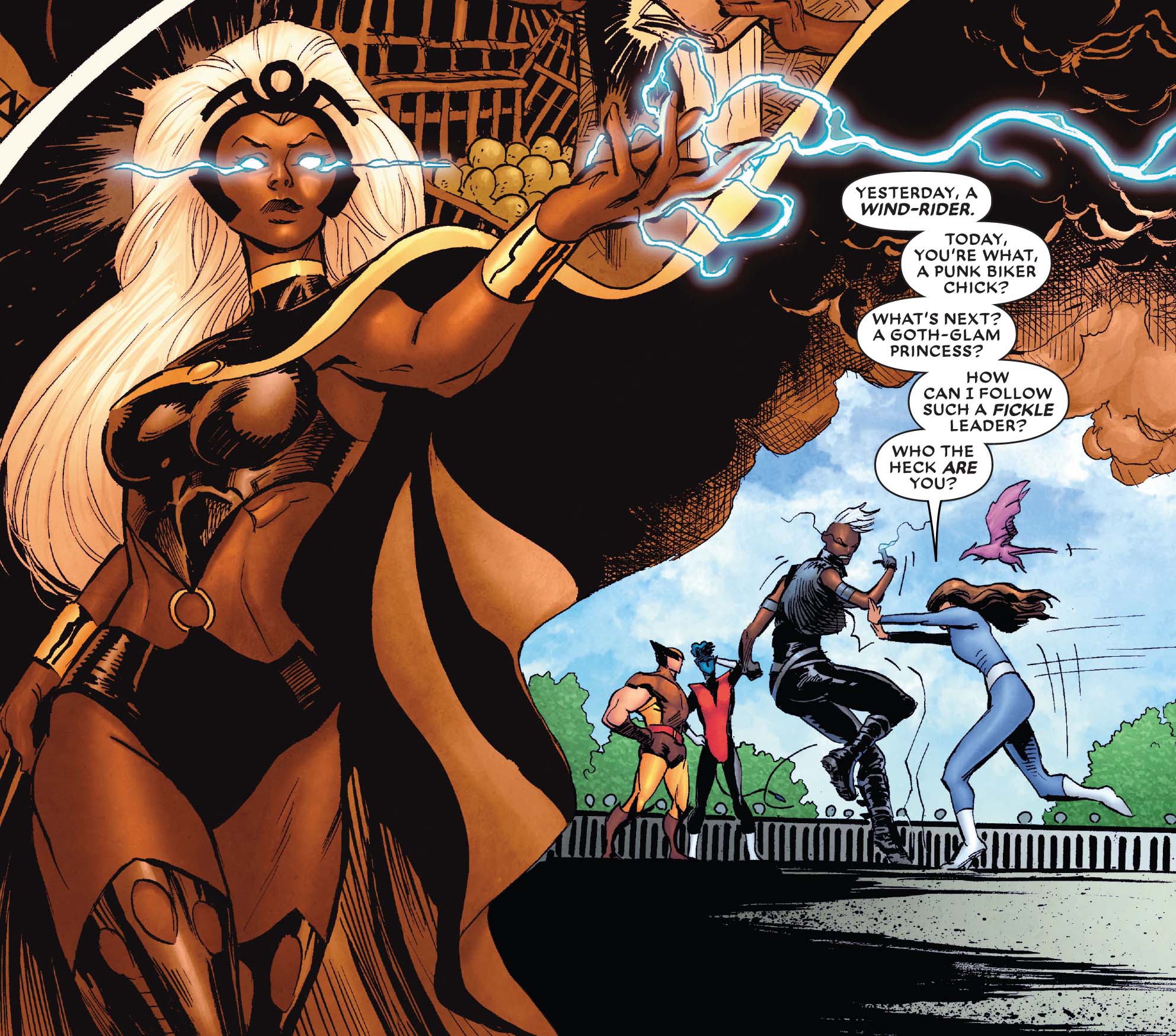Storm #1 reminds us that prequels can be good, actually
Marvel's new solo comic is set in the past, but looks to the future

The first issue of Ann Nocenti and Sid Kotian's new Storm book takes a distinctly retro approach to the wind-rider. It's the character's first solo comic in almost a decade, but it eschews the current X-Men era (perhaps partly because, as we know, that's due for some major upheavals in the coming months) in favour of a specific period in X-history. At the same time it uses its prequel status to dig deeper into an iconic character's emotional state.
Storm #1 takes place many years before the current Krakoan age, fitting pretty snugly around 1983's Uncanny X-Men #176 and #177, and featuring a classic mutant line-up. Rogue has recently switched sides, leaving the Brotherhood of Evil Mutants to join Xavier's mob, Wolverine has just lost Mariko, and Kitty Pryde is struggling with what she sees as a sudden change in her friend Ororo's attitude.
Storm #1 delves into the latter, focusing on the title character's inner life and finding a woman who is struggling to reconcile the different aspects of her past - the thief, the hero, the goddess - with the mantle of leadership that has been passed to her.

The issue opens with a classic mutant-on-mutant scrap that sees Mystique's crew defeated. The X-Men head to the beach for a spot of well-earned fun (cue Wolverine popping on the swim shorts), but play just seems to bring out the growing tensions within the crew.
The biggest point of contention here is Storm's new look, which she took on back in Uncanny X-Men #173, partly in response to having used her powers to inflict pain on another for the first time. Kitty didn't react well to the abrupt change in style (in that issue wailing "Your clothes! Your hair! ... How could you!?!" - a slight overreaction, Kitty!) and the new comic uses that as a jumping off point for some character conflict.
Basically, Kitty doesn't understand why Ororo has consciously distanced herself from her past and her friends, while Wolverine thinks that she is trying too hard, acting tough but still holding herself back. As he puts it at one point, "You rock the look, but you got none of the anarchy vibe."

When Storm goes for a swim to reflect on what Logan and Kitty have said, she loses control of her powers, almost drowning in the process. Later, we discover the reason for that is the existence of Blowback, a creepy (and nicely-designed) new antagonist who seems to be able to turn her powers against her. The issue ends with Storm conjuring a whirlwind to fight this new foe, but when it's reversed against her, she plunges once more into the depths of the ocean.
Get the best comic news, insights, opinions, analysis and more!
Prequels often get a rough ride, but Storm #1 does a good job of using its position in X-Men continuity to delve into an iconic character's emotional state. Sure, there's little actively new here. It's not unusual for Marvel to publish comics set in previous eras, and some of the dialogue is clunky (Wolverine asking Storm, "You ever been to a Sid Vicious punk show?... Ever lost it slamming in a mosh pit?" has strong "How do you do, fellow kids" energy), but the relative simplicity of the story and its focus on Ororo's emotional state gives us a powerful insight into what she is feeling during this turbulent period in her life. It reminds us that stories set in established events can add intriguing additional context, even if we, broadly speaking, already know where this is all going.
Blowback is cool, but he'll have to do serious damage before he can join this list of the best X-Men villains.

Will Salmon is the Streaming Editor for GamesRadar+. He has been writing about film, TV, comics, and music for more than 15 years, which is quite a long time if you stop and think about it. At Future he launched the scary movie magazine Horrorville, relaunched Comic Heroes, and has written for every issue of SFX magazine for well over a decade. His music writing has appeared in The Quietus, MOJO, Electronic Sound, Clash, and loads of other places too.


